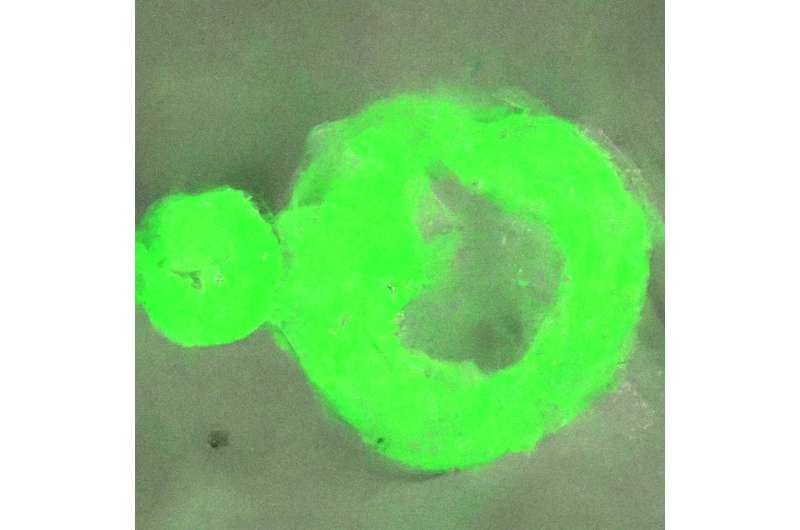When proteins get stuck at the solid phase: Unlocking the secrets to brain diseases
Originally published by University of Sydney on August 24, 2023
Nanoscale scan image showing protein condensate interaction. Credit: The University of Sydney
Many diseases affecting the brain and nervous system are linked to the formation of protein aggregates, or solid condensates, in cells from their liquid form condensate, but little is known about this process.
This liquid-to-solid transition can trigger the formation of what are called amyloid fibrils. These can further form plaques in neurons causing neurodegenerative diseases such as Alzheimer's.
Biomedical engineers at the University of Sydney, in collaboration with scientists at the University of Cambridge and Harvard University, have now developed sophisticated optical techniques to monitor at close range the process by which these protein aggregates form.
By testing a protein associated with amyotrophic lateral sclerosis—ALS disease, which affected astrophysicist Professor Stephen Hawking—the Sydney engineers closely monitored the transition of this protein from its liquid to solid phase.
"This is a huge step forward to understanding how neurogenerative diseases develop from a fundamental perspective," said Dr. Yi Shen, lead author of the research published in the Proceedings of the National Academy of Sciences (PNAS).



Comments
Post a Comment